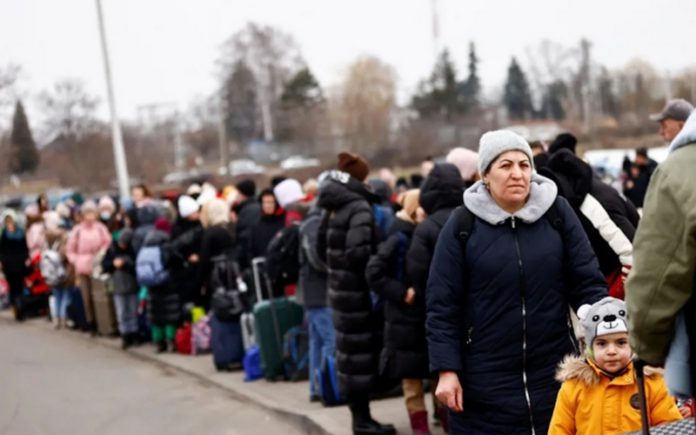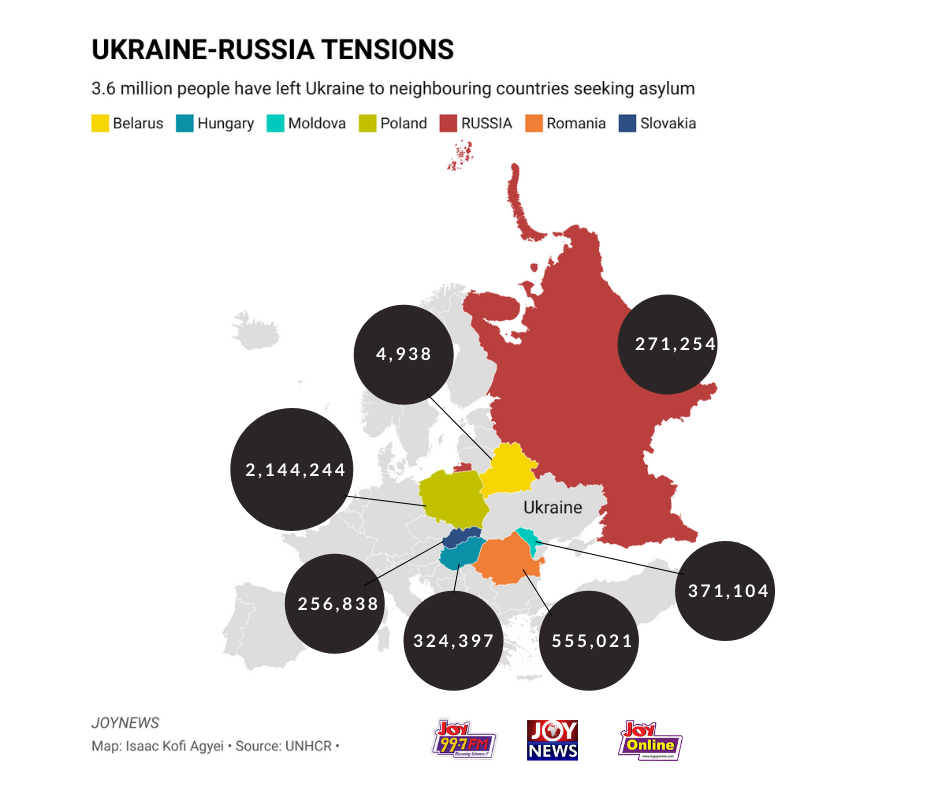
The United Nations Human Rights Council (UNHRC) can confirm that as of March 22, 2022, a total of 3.6 million people had left Ukraine to neighbouring countries seeking asylum.
According to the UN, refugees are predominantly crossing to neighbouring countries to the west, such as Poland, Romania, Slovakia, Hungary and Moldova.
Data put out by the Council showed Poland had taken in 2,144,244 refugees making the highest followed by Romania with 555,021.
Moldova, by March 22, had welcomed 371,104 refugees from Ukraine while Hungary, Slovakia and Belarus together took in more than 500,000 asylum seekers.

Aside from the 3.6 million who have left for neighbouring countries, some 10 million people have now fled their homes in Ukraine due to the crises, while another estimated 6.5 millionpeople are thought to be displaced inside the war-torn country itself.
Research carried out by the International Organisation for Migration (IOM) between March 9 and 16 indicate that of the 2,000 internally displaced people surveyed, nearly 30% had come from Kyiv, more than 36% had fled from the east of Ukraine and 20% had come from the north.
Also, nearly 40% were now in the west of Ukraine, with less than 3% in Kyiv; only 5% had left their homes in anticipation of the invasion, with the vast majority fleeing either at the start of the war or when it reached their area.
The IOM estimates that more than half of the people who are internally displaced are women and many are deemed particularly vulnerable because they are pregnant, have a disability or are victims of violence.
